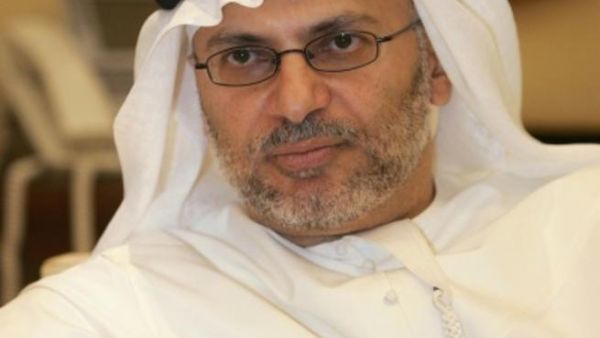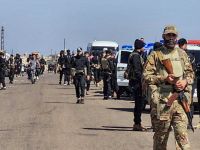Commenting on Dubai Declaration released by World Customs Organization

Commenting on Dubai Declaration,a consolidated report on the recommendations and outcomes of the 2013 WCO IT Conference and Exhibition, held under the patronage of His Highness Sheikh Mohammed bin Rashid Al Maktoum, UAE Vice-President, Prime Minister and Ruler of Dubai, His Excellency Dr. Anwar Mohammed Gargash, Minister of State for Foreign Affairs, UAE, reiterated that the global event represents a good opportunity for coordination and cooperation between customs and border authorities around the world to facilitate trade and ensure the protection of economies and societies: “With its complexities of globalization and regional unrest – are a major challenge that must be addressed in a way that ensures the country remains on track to security and stability, without hindering the flow of trade and investment. To achieve this stability and remove all barriers, there should be an effective customs system that facilitates trade without compromising on the requirements of a secure society and trade structure. That’s why Governments must work on building partnerships between government entities such as ports, customs and other outlets, and their counterparts in other countries in order to enhance the competitiveness of the country and the efficiency "
Hosted by Dubai Customs at Atlantis – The Palm in Dubai from 14 - 16 May, the conference explored ways that modern information and communication technology (ICT) can transform the government’s approach to border management. The concept ofcoordinatedborder management (CBM), which was highlightedat this year’s conference, calls for border agencies of several countries to come together to find new ways to work effectively forachieving seamless connectivity at the borders.
The Dubai Declaration stressed on the importance of strengthening coordination at the local and international levels between departments of customs, security, environment, health, municipalities, and immigration. Enhancing channels of communication between these parties through the use of best electronic solutions to maintain the security of each economy and society was also prioritized.Moving forward, agencies were encouraged to abandon silo thinking and appreciate the importance of communicating a unified and simpler message to the private sector and citizens.
Key points in the Dubai Declaration include:
FIRST: CBM can help improve efficiency of the supply chain to address both trade facilitation and security issues and consequently contribute to the economic competiveness of countries.
Second: Developing trust amongst different government agencies as well as between government agencies and the private sector is paramount. These bodies need to step up their levels of communication, cooperation, coordination and collaboration. This requires strong political and administrative leadership.
Third: Agencies must respect mutual objectives and obligations when making arrangements for collaborative risk management and control measures.
Fourth: Border agencies must address risks collaboratively with streamlined procedures avoiding unnecessary duplications.
Fifth: Application of technologies should be based on simplified and harmonized procedures embodied in the Revised Kyoto Convention and the SAFE Framework of Standards that touches upon particular CBM mechanisms such as ‘juxtaposed office’, ‘joint controls’, ‘single window’ and the enhancement of international cooperation with other customs administrations.
Sixth: Technology is an enabler for responding to the above recommendations. Public and private sector should jointly develop innovative solutions.
Seventh: Adopting innovative technology to improve border management must go hand-in-hand with an appropriate human resource development strategy to make it sustainable.
Eighth: Single Window enables sharing information, facilitates trade, reduces costs and mitigates risks at the borders. The WCO Data Model provides the standardized data set that meets the procedural and legal requirements of cross-border regulatory agencies and thus supports the Single Window concept.
Ninth: Customs plays a central role at the border and can provide its IT services to other border agencies.
Tenth: By working more closely with the private sector, more data quality and better compliance can be ensured to achieve further trade facilitation.
Eleventh: International organizations need to join forces and work together in order to improve cooperation and complementarities of border functions at national and international levels.
The conference hosted 19 activities including three roundtable discussions, three sessions, 10 speeches and three specialized technical seminars, headlined by over 70 speakers comprising key office bearers, leaders, decision-makers and experts in customs management worldwide, bringing together more than 1,000 international, regional and local representatives of the World Customs Organization, stakeholders and international media organizationsas well as customs departments of more than 100 countries.
The accompanying exhibition offered a platform to more than 100 global exhibitors to showcase their latest technology innovations in surveillance and inspection techniques such as customs and ports management software, support solutions for coordination between various government agencies and stakeholders to manage their operations effectively.
Background Information
Dubai Customs
Dubai Customs is one of the leading government departments taking part in enhancing sustainable development and promoting Dubai’s image worldwide, turning it into a principal capital, business and tourism destination, as it facilitates smooth movement of legitimate trade and leverages economic and social development, the matter which is consistent with its slogan stating "gateway to Dubai’s prosperity", because prosperity is usually based on free trade through a safe, fast and practical environment to meet the needs of people and adapt to their requirements. This in addition to DC’s main role to protect society and borders against those who try to smuggle prohibited substances to or through Dubai threatening the community safety and security.







